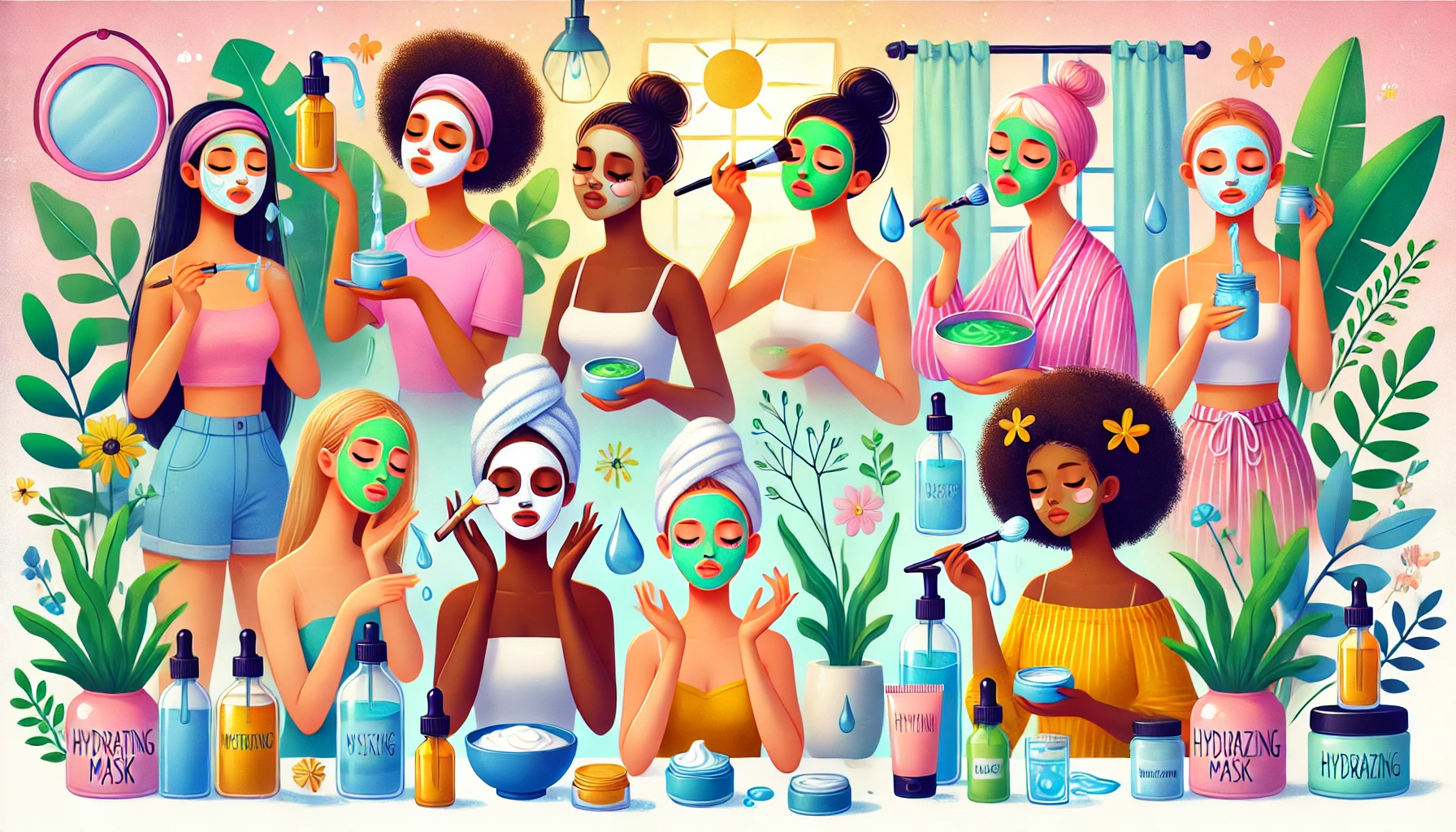Hydration is the foundation of healthy, glowing skin. Whether your skin is oily, dry, sensitive, or combination, keeping it properly hydrated is essential for maintaining its elasticity, texture, and overall radiance. This guide will explore the best methods and products to achieve well-hydrated skin, regardless of your skin type.
Why Skin Hydration is Important
Your skin acts as a barrier, protecting your body from external elements. When it’s hydrated, it functions more effectively, keeping out irritants and locking in moisture. Dehydrated skin, on the other hand, can appear dull, feel tight, and show signs of aging more quickly.
Signs Your Skin is Dehydrated
- Tightness or discomfort after washing your face.
- Dull, uneven complexion.
- Fine lines that appear more prominent.
- Flaking or peeling, especially in dry areas.
- Excess oil production (your skin compensates for the lack of hydration).
How to Hydrate Your Skin Based on Your Skin Type
1. Oily Skin
- Use lightweight, water-based moisturizers. Look for ingredients like hyaluronic acid or glycerin, which hydrate without clogging pores.
- Avoid heavy, oil-based creams that may make your skin feel greasy.
- Incorporate a gel-based cleanser to remove excess oil while keeping your skin balanced.
2. Dry Skin
- Opt for rich, emollient creams containing ceramides, shea butter, or squalane to restore your skin barrier.
- Use a hydrating toner or essence with ingredients like aloe vera or panthenol.
- Avoid harsh soaps or alcohol-based products that can strip natural oils.
3. Combination Skin
- Layer your hydration by applying a lightweight serum to your entire face and a richer moisturizer to drier areas.
- Use a gentle cleanser that doesn’t over-dry your skin.
- Incorporate a balancing toner to address both dryness and oiliness.
4. Sensitive Skin
- Stick to hypoallergenic, fragrance-free moisturizers.
- Avoid alcohol, artificial dyes, and harsh exfoliants.
- Use calming ingredients like chamomile, oat extract, or allantoin to soothe and hydrate.
Hydration Tips for All Skin Types
1. Drink Plenty of Water
Internal hydration is just as important as external care. Aim to drink at least 8 glasses of water a day to keep your skin hydrated from within.
2. Incorporate a Hydrating Serum
Serums with hyaluronic acid are excellent for providing deep hydration. Apply it on damp skin to help lock in moisture.
3. Use a Humidifier
Dry indoor air, especially during colder months, can dehydrate your skin. A humidifier adds moisture to the air, helping your skin stay hydrated.
4. Avoid Over-Cleansing
Washing your face too often can strip your skin of its natural oils. Stick to cleansing twice a day – morning and night.
5. Apply Products to Damp Skin
Lock in hydration by applying your products immediately after washing your face, while your skin is still damp.
6. Layer Your Products
Follow the “thinnest to thickest” rule: Start with lightweight serums or essences and finish with a heavier moisturizer.
Best Hydrating Ingredients to Look For
- Hyaluronic Acid: Draws moisture to the skin and retains it.
- Glycerin: A humectant that pulls water from the environment into the skin.
- Ceramides: Strengthen the skin barrier and prevent moisture loss.
- Aloe Vera: Soothes and hydrates.
- Panthenol (Pro-Vitamin B5): Provides long-lasting moisture and calms irritation.
Hydration Myths
“Oily Skin Doesn’t Need Moisturizer”
Even oily skin requires hydration. Skipping moisturizer can cause your skin to produce even more oil to compensate.
“Drinking Water Alone Hydrates Your Skin”
While drinking water helps, topical hydration is also essential to keep your skin balanced and healthy.
“All Moisturizers Are the Same”
Moisturizers vary in formulation and are tailored to different skin types and needs. Choose one that suits your specific skin concerns.
Professional Treatments for Deep Hydration
If your skin is severely dehydrated, consider professional treatments:
- Hydrafacial: Combines exfoliation, hydration, and extraction for glowing skin.
- Microneedling with Hyaluronic Acid: Stimulates collagen while delivering hydration deep into the skin.
- Sheet Masks and Biocellulose Masks: Provide an intense moisture boost.
Hydrating your skin is more than just a step in your skincare routine – it’s a commitment to maintaining its health and vitality. With the right products, techniques, and consistency, you can achieve a hydrated, glowing complexion that lasts all year round.


